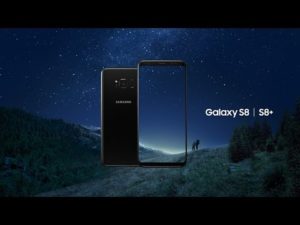A New Perspective on Brand Relationships Could Help the Samsung Galaxy S8
Last Friday Samsung launched a new flagship smartphone, the Galaxy S8, its first product launch following last year’s Galaxy Note 7 debacle. It’s loaded with ground-breaking features and functionality and has been called an “early favorite for the best phone of 2017,” but it’s probably not enough to re-galvanize the brand. Samsung needs more than a cool phone, it needs a new perspective on brand relationships.
Samsung needs to restore people’s trust in the brand not simply because of the faulty batteries that caused Galaxy Note 7s to ignite, but even more so because of the company’s poor communication and finger-pointing during the product recall. Samsung also needs to distract people from the political scandal that currently ensnares its founder’s grandson, Lee Jae-yong. And if those weren’t enough tall orders, the company needs to seed enough demand now to offset what is likely to soon generate far more interest: the next new iPhone. The iPhone “8,” scheduled to come out in September, will mark the iPhone’s 10th anniversary and is sure to be a dramatic redesign with real breakthrough innovations.
It won’t surprise anyone if Samsung fails to achieve these goals with the Galaxy S8. Samsung needs to catapult its brand past its history, its founders, and its competitors. It needs to achieve brand leadership apart from its products. Regardless of how awesome the Galaxy S8 is, at the end of the day, it’s just a product — and you can’t win a brand war with a product.
You can't win a brand war with a product.Click To TweetSamsung’s dependence on products is not entirely its fault. The whole smartphone industry (with the exception of Apple, the ultimate brand unicorn) seems to be built on an adage that a brand is only as good as its last phone.
And to Samsung’s credit, it hasn’t put all of its eggs in its product basket. The company’s advertising has adopted a more inspirational tone in recent years and its campaigns that incorporate virtual reality demonstrate real marketing creativity. Samsung also opened 837, a brand experience location in New York City’s Meatpacking district (named after its address on Washington Street), where people can interact with Samsung’s newest products in a highly experiential environment, attend concerts and special events that showcase Samsung’s cultural relevance, and get product support a la Apple’s Genius Bar.
So Samsung is on the right track — but perhaps it needs to “think different” (pardon the pun) about inspiring people’s love and loyalty and explore a new perspective on brand relationships. My colleague Ed Lebar and his associate Max Blackston, of Blackbar Consulting, present in the textbook Strong Brands Strong Relationships, a construct of brand relationships that could help Samsung.
They discuss the importance of the kind of relationship customers develop with a brand and they describe five relationship types:
- Identification: The brand is experienced as expressing the customer’s own values and aspirations.
- Reinforcement: Use or purchase of the brand makes the customer feel better and smarter – in his/her own eyes and in those of others – strengthening the attachment to the brand.
- Playful: The brand is liked for its relaxed style; it demands nothing of the consumer other than to experience the pleasure it gives.
- Role Model: The brand is admired for its charisma – a standard of leadership and innovation, which the customer, allying him/herself with the brand, is invited to share in.
- Self-Differentiating: The brand is seen as distinctive and unique. The brand’s difference is inclusive of the customer, who therefore feels distinctive and unique too.
While each of these is grounded in product attributes and performance, the brand relationship is based on brand perceptions and projections. Thinking about customers in this way leads to designing products, as well as brand communications, experiences, sales, and marketing, differently — for the long-term.
Perhaps if Samsung focused on cultivating one of these types of relationships, it might be able to establish a more sustainable brand advantage than it would with any one given product. This new perspective on brand relationships wouldn’t necessarily take the pressure off the Galaxy S8 launch, but it could lead to efforts that start to get the company off the product treadmill.
related:


